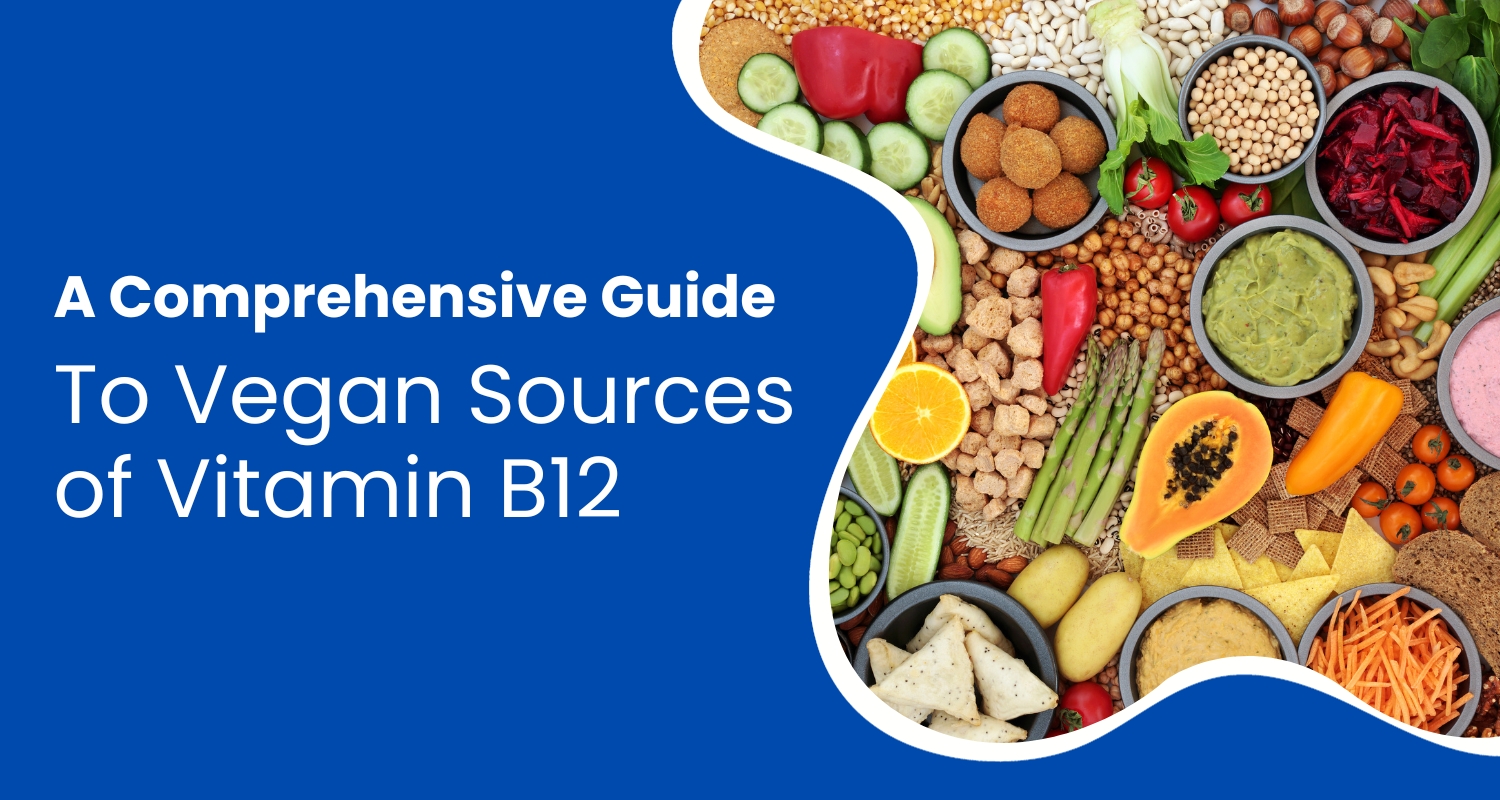With time if something has gained momentum then it’s veganism, not only this but vegans now have multiple tasty food items. Well, one thing vegans might lack is the presence of Vitamin B12.
Research suggests that as many as 92% of vegans may be deficient; this is particularly important for those who are trying to do their part for the environment by eating only plant-based foods. But fear not; You should hold off on replacing chickpeas with chicken for now.
Being a healthy vegetarian doesn’t mean you have to sacrifice your B12 intake just because you’re vegan. In this write-up, we will check all about the vegan sources of Vitamin B12 and how it enhances your health. Keep reading for more!
Knowing about Vitamin B12
Everyone needs vitamin B12, but vegans and vegetarians need it even more since they’re more likely to suffer from a deficiency. This vitamin is essential for good health but could be hard to acquire enough on a plant-based or vegan diet.
To keep healthy red blood cells and a well-functioning neurological system, adults—vegan or not—need 2.4 mcg of vitamin B12 every day. Because malabsorption is more frequent in the elderly, their needs may be 10–30% higher.
Why is Vitamin B12 Intake Important?
It plays an essential role in various body activities, including DNA creation and preserving nerve health. Now, let’s have a look at the many reasons why it is essential to ingest vitamin B12 on a consistent basis.
Assist With Red Blood Cell Formation
When it comes to making red blood cells, vitamin B12 is an absolute must. Vitamin B12 deficiency inhibits the correct development of red blood cells and reduces their production. Red blood cells in a healthy person are tiny and round, but when vitamin B12 isn’t present, they enlarge and become oval.
Megaloblastic anemia happens when the red blood cells do not migrate appropriately from the bone marrow into the circulation because of their enlarged and atypical morphology. Anemia occurs when insufficient red blood cells in the body carry oxygen to the important organs. Illnesses like lethargy and exhaustion may ensue.
Helps to Prevent Major Birth Defects
A healthy pregnancy is dependent on the mother’s vitamin B12 levels being enough. Research shows that a mother’s adequate B12 levels are crucial for the correct development of her unborn child’s brain and nervous system.
An increased risk of birth abnormalities, including neural tube malformations, may be associated with a vitamin B12 deficit during the first trimester of pregnancy. In addition, a deficiency of vitamin B12 in the mother’s blood might hasten the delivery of the baby or cause a miscarriage.
Reduce the Risk of Macular Degeneration
According to several studies, The progressive vision loss that most individuals experience after age 50, known as AMD, or age-related macular degeneration, is associated with a vitamin B12 deficiency.
You may lower your risk by increasing your vitamin B12 intake, which is crucial for maintaining healthy red blood cells. In addition, vitamin B12 helps prevent age-related macular degeneration, which is linked to elevated homocysteine levels.
Prevent Loss of Neuron
Memory loss, particularly in the elderly, has been linked to vitamin B12 insufficiency. One possible function of the vitamin is to slow or stop brain atrophy, the gradual death of brain cells often linked to cognitive decline and dementia.
The prime importance of vitamin B12 for brain function increases with age. Even the prevention of cognitive deterioration has been suggested by certain research as a potential benefit of the vitamin. Deficits in vitamin B12 might impair cognitive abilities and memory.
Reduces Homocysteine and Prevent Heart Disease
The risk of cardiovascular disease is typically long associated with increased fixation of the amino acid homocysteine in the blood. Your homocysteine levels will rise if your vitamin B12 levels are very low.
According to studies, consuming vitamins from vegan B12 sources may lower homocysteine levels, which abates the risk of cardiovascular disease. Unfortunately, vitamin B12 supplements have not been shown to aid in preventing heart disease, according to the available scientific research.
Give Boost To Your Energy
Taking a vitamin B12 pill has long been promoted as the best way to get a quick energy boost. Despite not supplying energy, every B vitamin is essential for your body to produce it.
Weakness & exhaustion are common symptoms of vitamin B12 deficiency. If your energy levels are low, one thing you can do is make it a point to consume more Vitamin B12 foods for vegan.
Prevent Osteoporosis by Improving Bone Health
Your bone health may benefit from keeping your vitamin B12 levels acceptable. Decreased mineral density increases the risk of osteoporosis by gradually making bones more brittle and prone to breaking.
Follicle and hip bone mineral density were both shown to be lower in men with low vitamin B12 levels in a study of 110 celiac disease patients. Additional research has linked insufficient vitamin B12 levels to weakened bones along with the increased risk of osteoporosis and fractures.
Why Do Vegans Need B12?
Finding Vitamin B12 sources for vegans might be even more of a struggle for vegans due to the exclusion of dairy and eggs from their diet. Hence, it is important for the human body as it aids several bodily processes.
Vitamin B12 is essential for many metabolic and chemical reactions in the body, including the creation of red blood cells, the synthesis of DNA, the proper functioning of the neurological system, and the metabolism of energy.
A deficiency of functioning red blood cells, known as anemia, and a host of neurological disorders may be averted with proper B12 maintenance, which helps avoid potentially fatal complications. Since the vitamin is mostly found in animal products, vegans should pay extra attention to their B12 levels, as we said before.
Well, the next question that might strike your mind is how to get B12 as a vegan? Well, the answer is easy, as with the consumption of sources mentioned in the next segment.
Top 8 Vegan Sources of Vitamin B12
So, what are your best alternatives if you’re following a plant-based diet and want to keep your B12 levels in check? Let’s examine this.
Nutritional Yeast
One meal that is quite popular among vegans is nutritional yeast. It is often supplemented with vitamin B12, and its high concentration may help keep vitamin B12 levels in check.
You may fulfill 100% of your recommended daily dose of vitamin B12 with only one tablespoon (15 mL), which has 2.4 mcg of the vitamin. If you want the advantages, be sure the nutritional yeast you buy is enriched with vitamin B12.
In addition, this item is a fantastic source of fiber, a range of minerals and vitamins, and protein.
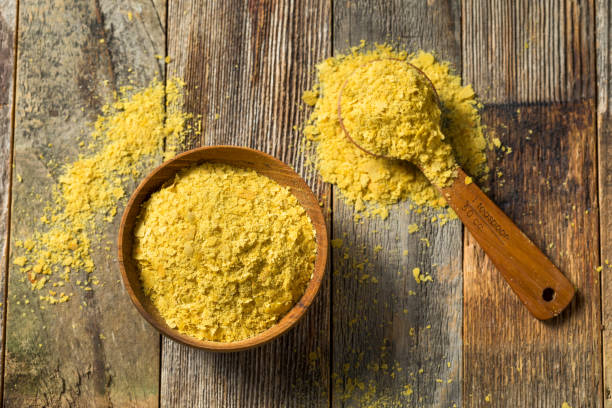
Marmite + Yeast Spreads
Vitamin B12 may be found in yeast spreads, including low-sodium Vegemite and Marmite. Yeast spreads naturally include vitamin B12, which is created during yeast manufacturing. It’s a fantastic addition to vegan dishes that are strong in vitamin B12. Eight grams of Marmite spread provides 1.9 mcg of vitamin B12 or almost 76% of what we need.
Conversely, you will receive 0.5 mcg of vitamin B12, or 25% of the daily required consumption, with 5 grams of Vegemite and 40% Less Salt. Ensure the yeast spread is supplemented with vitamin B12 by reading the nutrition label before purchasing it.
Spread out yeast extract on crackers, toast, sandwiches, and other foods to increase your daily intake of natural B12 sources for Vegan.
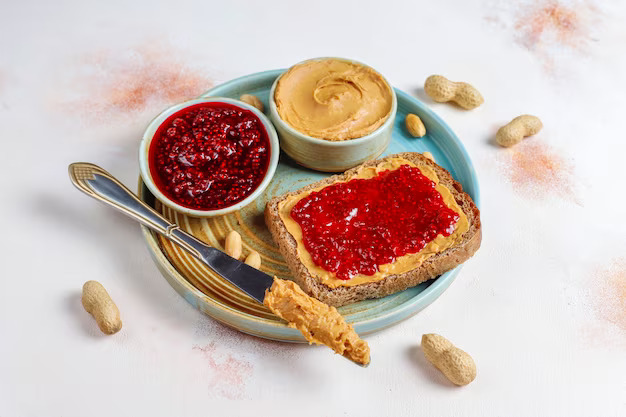
Fortified Soy + Almond Milk
More and more people opt for plant-based “milk,” such as almonds, oats, and soy milk. Some are characterized as gritty, while others are characterized as creamy or nutty. Still, you may choose a delicious one among the various variations. If you’re looking for a vegan “milk” that contains B12, check the ingredients!
Not all of them have strong defenses. Many American products do not seem to be vitamin B12 fortified. However, they could include some essential elements, such as calcium and iodine, that dairy milk normally provides.
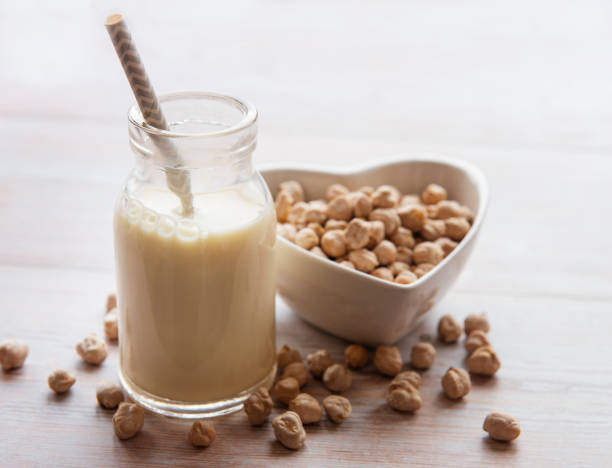
Plant-Based Meats
Meat substitutes and other fortified Vitamin B12 foods for vegan are another great way to boost your vitamin B12 consumption. You can get enough vitamin B12 from several vegan meat alternatives, including veggie burgers, plant-based chicken, pork, and other meat alternatives.
Take the ubiquitous Beyond Meat burger as an example. It contains 3.15 mcg or 131% of the recommended daily allowance for vitamin B12.
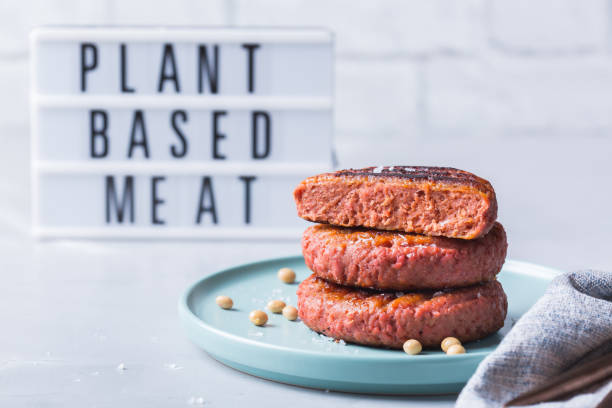
Fortified Cereals
Believe it or not, vitamin B12 is only one of many minerals and vitamins added to many morning cereals. This might be the ideal way to get more sources of B12 in a vegan diet every day if you like eating cold cereal with your morning meal.
Check the vitamin B12 content on the food label before you buy it. Fortified cereals like Kellogg’s All-Bran Original are a great option for those following a plant-based diet. The amount of vitamin B12 in one serving (⅔ cup) of this fortified cereal is 20%.
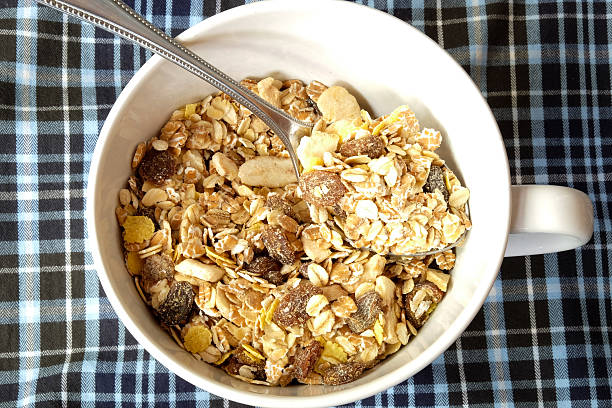
Tempeh
Tempeh is a vegan source of vitamin B12, among the few unfortified vegan meals. Tempeh, a classic Indonesian delicacy, is prepared from fermented soybeans, in case you’re unfamiliar with the term. It is during fermentation that vitamin B12 is really produced.
You may fulfill around 3% of your daily vitamin B12 requirements with only half a cup of Tempeh, which contains up to 0.1 mcg of vitamin B12. Even though this may not seem like much vitamin B12, Tempeh is among good sources of B12 in vegan diets.
Tempeh is a valuable source of vitamin B12 and has many other health benefits, including being a plant-based protein and good bacteria for your digestive tract. Add Tempeh to salads, chili, grain and vegetable bowls, stir-fries, and more! You can cook Tempeh or eat it raw.
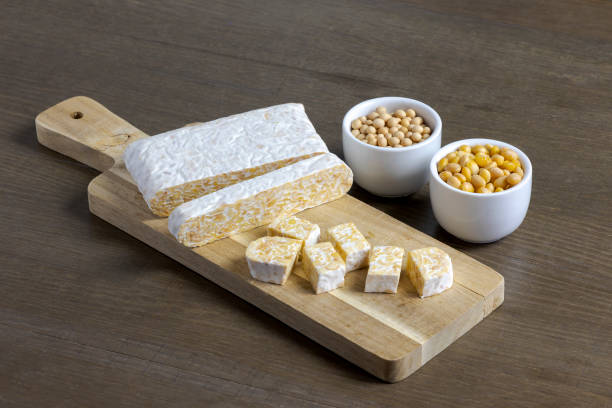
Nori Seaweed
Vegans and vegetarians sometimes need to be mindful of the iodine content of foods like Nori. There is some indication that raw Nori might provide vegans with enough vitamin B12.
Curiously, the B12 levels seem to decrease when Nori has been cooked or dried. Increased quantities of “pseudo-vitamin B12,” which is similar to spirulina, may have a deleterious effect on B12 stores.
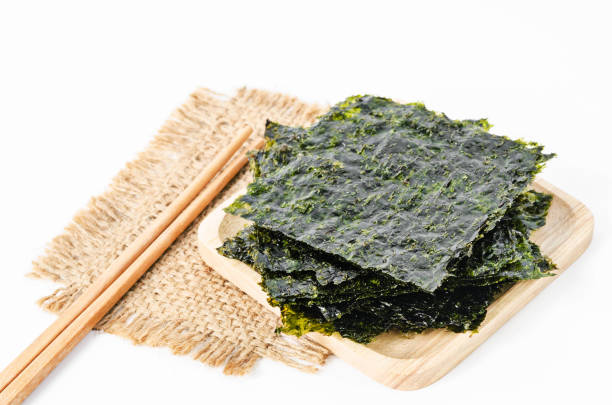
Shiitake Mushrooms
Some mushrooms really have vitamin B12 in them. Who knew? Among them is the famous shiitake mushroom. You can get the quantity of vitamin B12 you need each day—around 2.4 mcg—by eating roughly 50 grams of dry Shiitake mushrooms.
It would be unwise to rely only on this quantity of dried mushrooms as your daily vitamin B12 intake. It should be noted that a number of variables significantly affect the quantity of vitamin B12 present in mushrooms. To increase your daily vitamin B12 consumption, try adding them to stir-fries, rice, pasta, or even snack foods.

Types of Vitamin B12 Supplements
Some mushrooms really have vitamin B12 in them. Who knew? Among them is the famous shiitake mushroom. You can get the quantity of vitamin B12 you need each day—around 2.4 mcg—by eating roughly 50 grams of dry Shiitake mushrooms.
Cyanocobalamin
The most researched, stable, and inexpensive synthetic version of vitamin B12 is cyanocobalamin. Here, the cobalt ion detaches from a cyanide molecule as it is absorbed.
What does this mean? Since different entire meals expose your body to comparable doses of cyanide, most scientists believe it is not.
Methylcobalamin + Adenosylcobalamin
Natural dietary vegan sources of B12 include methylcobalamin and adenosylcobalamin. To make B12 useful, your body must first convert cyanocobalamin into both of these forms.
Recent studies have indicated that the body may have trouble retaining cyanocobalamin compared to the natural B12 sources for Vegan. However, an earlier study found that cyanocobalamin might be easier to absorb than methyl (49% vs. 44% absorption).
Hydroxocobalamin
This is the most common kind of B12 that is consumed or administered via injections. Although daily supplementation is more cost-effective and more convenient than injections, hydroxocobalamin is often better maintained than cyanocobalamin.
How Much B12 Should a Vegan Take?
Wondering how much B12 should a vegan take? Well, Vitamin B12 is known to be a potent nutrient that is present primarily in animal products and should be supplemented accordingly for vegans. Taking small, regular doses is recommended because your body’s ability to absorb B12 decreases over time.
Adults should aim to consume 2.4 micrograms daily or take a weekly supplement of 2,500 micrograms for optimal B12 absorption rates. Conversely, vegans may require higher daily or weekly B12 dosage amounts due to different absorption rates.
List of Best B12 Supplements for Vegans
Apart from the food items, you can find the best B12 supplement for vegans online. The consumption of these supplements is subject to healthcare professionals’ directions. Let us check the best supplements available online.
Vitacost Liquid Vitamin B12
An easy-to-swallow product, Vitacost Liquid Vitamin B12, has been independently evaluated. The versatility of liquid supplements makes them a great alternative for those who like to take them orally or mix them with their favorite beverage.
With 1,000 mcg of vitamin B12 as cyanocobalamin, one serving of 16 drops of Vitacost Liquid Vitamin B12 is all you need. You may alter the dosage as required or share it with family members since one drop would offer 65 mcg.
HUM B12 Turbo
If you’d rather take your calcium supplement in tablet form, HUM B12 Turbo may accommodate your demands. When taken one day with meals, these vegetarian pills deliver 1,000 mcg of methylcobalamin, the active form of vitamin B12. None of the main allergens, artificial flavors, colors, or preservatives are included in these tablets.
NOW Foods Methyl B-12 Lozenges
Supplements by NOW: You may eat or dissolve the 1,000 mcg Methyl B-12 lozenges under your tongue. In the form of methylcobalamin, each lozenge supplies 1,000 micrograms of vitamin B12.
Because of their kosher certification, they are also acceptable for vegetarians and vegans. If you are looking for value for your money, go no further than their reasonably priced and quality-tested items.
Conclusion
The human body cannot function properly without vitamin B12. It plays an essential part in the maturation and proper operation of several bodily organs. Consuming foods that naturally contain vitamin B12 is the best way to ensure that you obtain the required daily dose of this vitamin.
Discuss the possibility of taking vitamin B12 supplements, improving your diet to include more B12-rich foods, or obtaining a blood test with your healthcare practitioner if you are thinking about your vitamin B12 intake.
Frequently Asked Questions
Let us check out some of the frequently asked questions related to the vegan sources of Vitamin B12.

